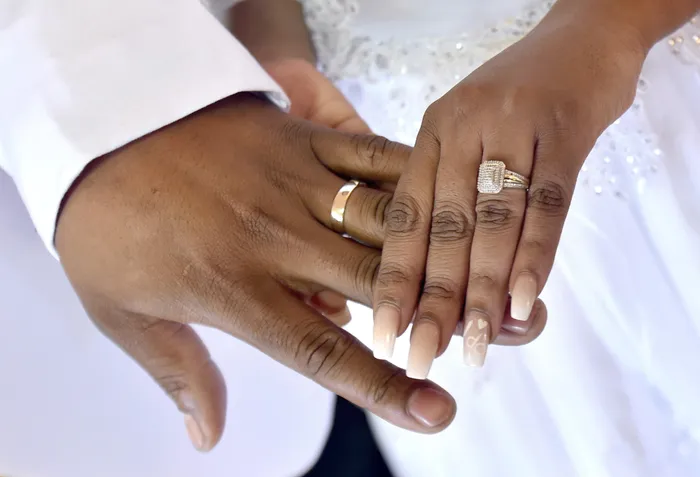Late husband’s family caught in a lie after trying to invalidate customary marriage

File picture: Oupa Mokoena African News Agency (ANA)
Pretoria - The KwaZulu-Natal High Court has ruled against a late husband’s family after they sought to declare his marriage invalid even though his uncle was part of the delegation that paid lobola on his behalf.
The late husband was estranged from his family, and when he got married in customary tradition, only his uncle and aunt were present during his lobola negotiations.
Before the deceased paid lobola, he introduced the girlfriend to his four children who were living with him.
Lobola negotiations commenced in December 2020 and thereafter celebrations took place at her father’s home. A sheep was slaughtered and other cultural practices were observed, including giving the man’s family gifts in the form of alcohol.
The next day, she was taken to the deceased’s home by her family and she was handed over to the deceased in the presence of the deceased’s emissaries, his uncle, his aunt and colleagues.
They then started living together as husband and wife until he died in February 2021, but they had not registered the customary marriage at Home Affairs due to the pandemic.
The wife brought an application wanting the court to order the customary marriage entered into between her and the deceased to be recognised in accordance with the prescripts of the Recognition of Customary Marriages Act.
The deceased’s mother opposed the application and argued that they were not married, and the uncle involved in the celebrations filed an affidavit supporting the mother’s contentions.
The mother argued that there was no celebration of the customary marriage, there was no delivery of gifts by the bride, no delivery of gifts by the deceased to the bride’s family and that there was only the payment of lobola.
She also stated that her house and the deceased’s house were opposite each other and that she knew “as a fact” that the wife was not handed over.
The wife disputed this and said her house was three houses away from the deceased’s house and that she would therefore not have seen what happened at his house.
She added that the deceased was happy for just his aunt and uncle to be engaged in the wedding planning. So it was unnecessary, if not impossible, for him to take her as his bride to his parents’ house.
To prove her marriage was legal, she also produced the uncle’s affidavit, which stated that he went to the deceased’s home in December 2020 saying that half of the lobola had been paid in cash and the balance would be paid later.
To invalidate the marriage, the uncle confirmed that an amount of R89 500 was paid. However, five live cows were not delivered, which to him made the marriage incomplete.
However, he admitted that they were given a crate of beer and three bottles of cognac, but denied that there were celebrations “in their presence” or that a sheep was slaughtered in their presence.
The deceased’s eldest son also filed an affidavit disputing the existence of a customary marriage and supported his paternal family.
To prove that the son was aware of the relationship, and that they were staying together as a family, the wife attached a number of messages sent by him to her, referring to her as “Ma”, providing details for his tuition to be paid and also asking her to use money saved for “rainy days” to pay for electricity and petrol.
The wife said she also organised the funeral and attached a video showing her dressed in black and sitting in the front row as a widow next to the coffin with the rest of the family.
The mother disputed the wife’s statement regarding funeral details even though she had not attended her son’s funeral.
In her judgment, Judge Elsje-Marie Bezuidenhout said if she were to consider the version of the deceased’s mother and the grounds upon which she claimed that there was no valid customary marriage, it would be difficult to find that a valid customary union was not concluded.
The judge mentioned that the deceased’s mother influenced her grandson’s arguments even though he lived with his father and stepmother as a family.
She also said the deceased’s family failed to challenge the fact that the two had lived together as husband and wife after a celebration was held.
After considering all arguments and evidence presented, Judge Bezuidenhout ruled that the customary marriage was valid and gave the wife permission to register her marriage.
She ordered the mother of the deceased to pay the costs of the application.
IOL